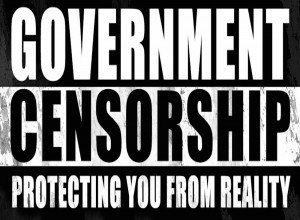With a former tech giant announcing yesterday that they are laying off another 30,000 skilled workers, the writing is on the wall for just how much the economy has really recovered since 2008 under the great Fed experiment. And while the central bank sits right now in a closed door meeting one day before they are to announce their most important policy direction in over five years, the fact of the matter is that whether they do or don’t raise rates will be a meaningless gesture to the over 46 million Americans who have not seen a drop of the vast trillions which have been poured into the economy over the past seven years, and who are a part of a record number of Americans living in poverty.
In addition to new poverty numbers released today by the Census Bureau, the median income for American households has also fallen back to levels not seen since 1989, when interest rates back then were above 10%, and the ability to afford a home and education were much more easily accessible.
According to the just released Census Bureau annual report on Income and Poverty, in 2014 the official poverty rate was 14.8% as a result of a record 46.7 million Americans living in poverty. This is the fifth consecutive year since the end of the recession that the number of impoverished Americans has barely not budged. - Zerohedge
So when the Fed comes out and says their decisions are based on data dependency, what they really mean is that the data has proven their massive money printing schemes along with zero interest rates have failed for the economy and most Americans, and that they cannot admit their Keynesian based ideologies are at fault for not only creating the 2008 crisis, but extending it to the point that a financial and monetary collapse could result from even raising rates by a mere quarter point.
September 17 is the equivalent of a financial D-Day, where not only is the truth going to be revealed on whether the central bank has the will and fortitude to stand up to Wall Street, but also on whether the Fed actually believes the lies they have spun that the economy is good and in recovery. And if they actually follow through with their bylines of enacting policy based on data dependency, then looking at the real unemployment, housing, gdp, wage, and inflation numbers, the central bank will not only not raise interest rates, but be forced into a new round of super-inflated quantitative easing that will make the last five years of money printing look like just one day in the Weimar Republic.
Kenneth Schortgen Jr is a writer for Secretsofthefed.com, Examiner.com, Roguemoney.net, and To the Death Media, and hosts the popular web blog, The Daily Economist. Ken can also be heard Wednesday afternoons giving an weekly economic report on the Angel Clark radio show.

